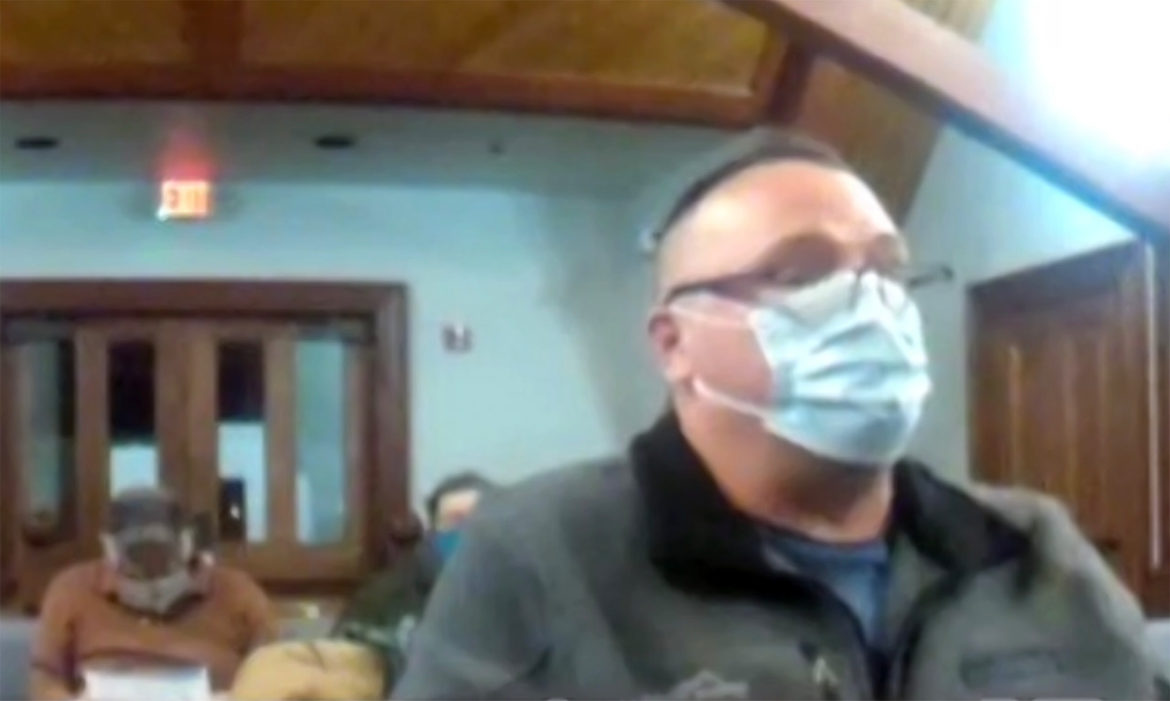By Thomas P. Caldwell
PLYMOUTH — Kevin Roy of Casella Waste Systems urged the governing board of the Pemi-Baker Solid Waste District to consider reopening its contract with North Country Environmental Services to extend it for the life of the Bethlehem landfill at a Dec. 8 meeting.
North Country Environmental Services, a Casella subsidiary, operates the landfill on a six-stage permit with annual limits on number of cubic yards it can process. The landfill is in the sixth stage and is projected to reach its final capacity in 2026.
The Pemi-Baker Solid Waste District, which represents towns extending from Danbury to Sugar Hill, is currently under a 10-year solid waste contract with NCES that runs until April 2023.
Speaking of other solid waste facilities where trucks have long waiting times before being able to unload, Roy said, “I think with the capacity shortfall, and the difficulty for getting into facilities because of the rack capacity, I think it’s important that we all look long-range as long as we can with the remaining capacity, and we would like you guys to be on board for the remaining life of that facility. It’s closest, convenient, and you guys got a really good price. Transportation costs are good.”
He continued, “If you don’t go up there … no matter which one you pick, if you can get in, the distance is going to be longer, and you take us out of the market, the prices are going to change. There are studies out there what the economic impact is once more capacity goes offline. All those dynamics change, and they’re moving targets.”
Roy also spoke of the limits imposed by the state on solid waste facilities. Noting that the Bethlehem landfill “has the stated capacity of 230,200 yards per year, which is much lower than what we typically receive from the state of New Hampshire,” Roy said NCES had to stop accepting construction and demolition material until the new year begins in January. He said the company is appealing that annual limit in hopes of being able to accept more in the future.
“God forbid if we have some type of disaster in the Northeast or New England or New Hampshire, and we have major flood debris or something like that,” he said.
Roy also spoke of the “flurry of legislation” in New Hampshire relating to solid waste, including efforts opposing Granite State Landfill’s proposal to site a facility in Dalton.
Public comment at the end of the meeting focused more attention on Dalton, with Wayne Morrison of Whitefield, president of the North Country Alliance for Balance Change, asserting that a landfill there would be detrimental to the state. Beyond potentially harming Forest Lake State Park and Ammonoosuc River, Morrison said it simply is not needed to handle New Hampshire’s solid waste.
“To the extent that now more than half of the trash going into some of our landfills is coming from out of state, if you’re feeling bad about your construction material not being able to go into Bethlehem, part of the reason for that is it’s being filled up with Massachusetts construction material,” he said.
Asked about arguments that the Interstate Commerce Act requires the state to accept trash from out of state, Morrison the Act applies only to businesses. He said Vermont and Maine have been discussing how government entities can operate landfills and avoid having to accept out-of-state material.
Rep. Joyce Weston (D-Plymouth) said some of the pending legislation seeks to reduce the amount of solid waste through such methods as a bottle bill to encourage recycling. She also said the state already has worked to reduce the amount of packing material used by companies but, “Amazon is really a problem because the scope of Amazon’s business has grown so fast and is taking over commerce at such a rate — maybe because of COVID — that is something we are going to have to deal with in the future. … It’s really getting out of control.”
Rep. Suzanne Smith (D-Hebron) noted that the state’s new Solid Waste Working Group is looking into composting because “food waste is such a huge part of what goes into our landfills.”
Smith also spoke against “the idea of putting a huge landfill near a state park where the trucks are going to be driving through downtown Bethlehem to get to the Dalton landfill.”
Sarah Doucette of Carroll noted that the trucks also would be going through her town. “My village center would be utterly devastated if this project goes through,” she said.
T.P. Caldwell is a writer, editor, photographer, and videographer who formed and serves as project manager of the Liberty Independent Media Project. Contact him at liberty18@me.com.





